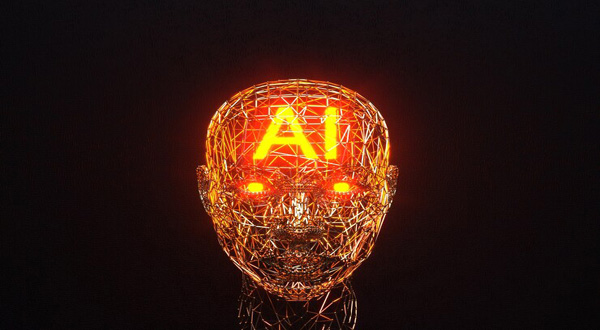How Does AI Work: A Simple Guide for Everyone
- Update Time : Tuesday, March 12, 2024
- 23 Time View

How Does AI Work: A Simple Guide for Everyone: Artificial Intelligence (AI) has become a buzzword in today’s technological landscape, but how does it actually work? In this article, we’ll break down the basics of AI in simple terms that anyone can understand. From its fundamental concepts to real-world applications, let’s dive into the fascinating world of AI.
Table of Contents
| Sr | Headings |
| — | ————————————– |
| 1. | Understanding Artificial Intelligence |
| 2. | Types of AI |
| 3. | Machine Learning Basics |
| 4. | Neural Networks |
| 5. | Deep Learning |
| 6. | Natural Language Processing (NLP) |
| 7. | Computer Vision |
| 8. | AI in Everyday Life |
| 9. | Ethical Considerations |
| 10. | The Future of AI |
| 11. | FAQs |
Understanding Artificial Intelligence
Artificial Intelligence refers to the simulation of human intelligence in machines, allowing them to perform tasks that typically require human intelligence. These tasks include learning, problem-solving, perception, and decision-making.
Types of AI
There are two main types of AI: Narrow AI and General AI. Narrow AI, also known as Weak AI, is designed to perform a narrow task, such as facial recognition or language translation. General AI, on the other hand, would have the ability to understand, learn, and apply its intelligence across different tasks, similar to human intelligence.
Machine Learning Basics
Machine Learning is a subset of AI that enables machines to learn from data without being explicitly programmed. It uses algorithms to analyze large datasets, identify patterns, and make predictions or decisions based on the data.
Neural Networks
Neural Networks are a fundamental component of AI inspired by the structure of the human brain. They consist of interconnected nodes, or neurons, organized in layers. Each neuron processes and transmits information to the next layer, allowing the network to learn complex patterns and relationships in data.
Read More: Advantages of Artificial Intelligence in Agriculture
Deep Learning
Deep Learning is a subset of Machine Learning that utilizes deep neural networks with multiple layers (hence the term “deep”). These networks can automatically learn representations of data through a hierarchical structure, enabling them to achieve remarkable accuracy in tasks such as image recognition and natural language processing.
Natural Language Processing (NLP)
Natural Language Processing is a branch of AI that focuses on enabling computers to understand, interpret, and generate human language in a meaningful way. It powers applications like virtual assistants, language translation, and sentiment analysis.
Computer Vision
Computer Vision is another field of AI that enables machines to interpret and understand visual information from the real world. This includes tasks like object detection, image classification, and facial recognition, which have applications in areas like autonomous vehicles and medical imaging.
AI in Everyday Life
AI has already permeated various aspects of our daily lives, from personalized recommendations on streaming platforms to voice-activated virtual assistants like Siri and Alexa. It’s also used in healthcare for disease diagnosis, in finance for fraud detection, and in manufacturing for predictive maintenance.
Read More: Embracing Artificial Intelligence: Enhancing Everyday Life
Ethical Considerations
As AI continues to advance, it raises important ethical considerations regarding privacy, bias, job displacement, and accountability. It’s crucial to ensure that AI technologies are developed and deployed responsibly, with consideration for their societal impacts.
The Future of AI
The future of AI holds immense potential, with ongoing research and advancements in areas like reinforcement learning, quantum computing, and explainable AI. As technology continues to evolve, AI will likely play an increasingly integral role in shaping our future society.
FAQs
- What is the difference between AI and Machine Learning?
AI is the broader concept of machines being able to carry out tasks in a way that we would consider “smart,” whereas Machine Learning is a subset of AI that involves the use of algorithms to allow machines to learn from data.
- How does Deep Learning differ from traditional Machine Learning?
Deep Learning involves the use of deep neural networks with multiple layers to automatically learn representations of data, whereas traditional Machine Learning typically involves feature engineering and manual selection of relevant features.
- Can AI replace human jobs?
While AI has the potential to automate certain tasks and jobs, it’s unlikely to completely replace humans. Instead, it’s more likely to augment human capabilities and create new job opportunities in areas like AI development and maintenance.
- Are there any ethical concerns surrounding AI?
Yes, there are ethical concerns surrounding AI, including issues related to privacy, bias in algorithms, job displacement, and the potential for autonomous AI systems to make harmful decisions.
- What are some real-world applications of AI?
AI is used in various real-world applications, including virtual assistants, autonomous vehicles, medical diagnosis, finance (fraud detection), manufacturing (predictive maintenance), and more.
In conclusion, Artificial Intelligence is a fascinating field that holds tremendous potential to transform our world. By understanding the basics of how AI works and its various applications, we can better appreciate its impact on society and navigate the ethical considerations that accompany its development and deployment.












